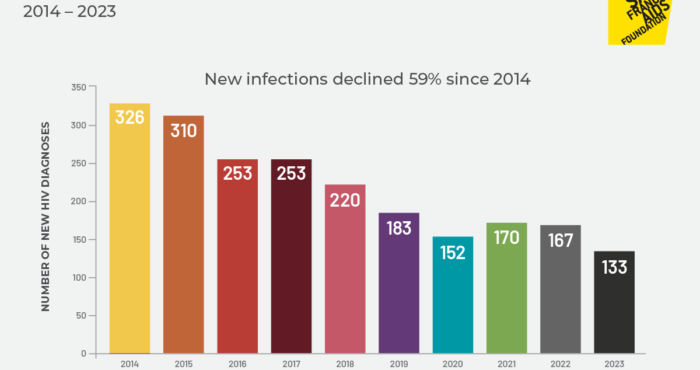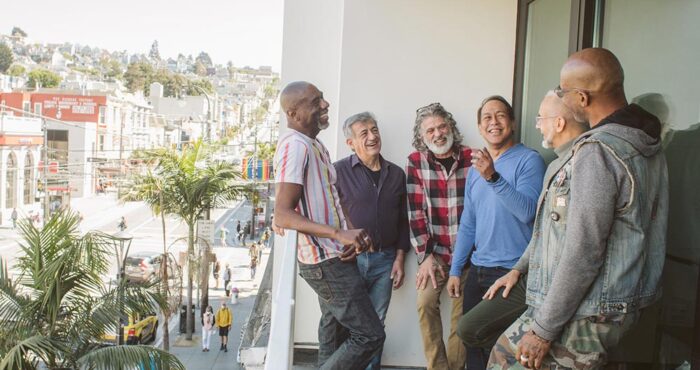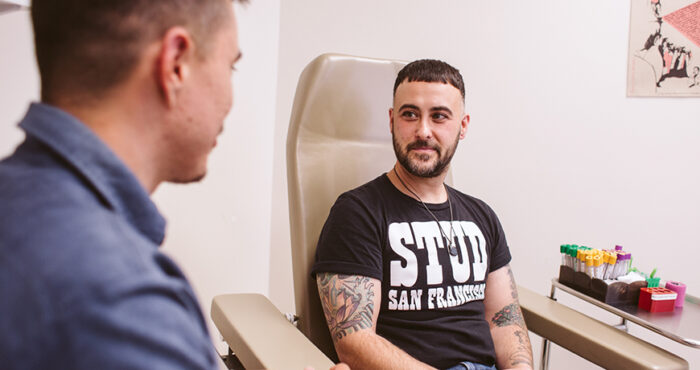In the age of undetectable, do I need to disclose?

Last year, I met a man I really liked. But he stopped talking to me after we hooked up and discovered I was living with HIV.
The chemistry was killer; we clearly hit it off that fiery evening. He texted me shortly after I left, looking forward to seeing me again. My heart fluttered; I felt the same.
Later, he texted again saying that he’d found my Instagram page and saw that I was proudly living with HIV.
He said he wished I’d shared that with him before we’d had sex, and asked if he should be worried. I sympathized and validated his feelings, and went on to share that, in fact, I was undetectable, and had been for 8 years.
He was not familiar.
So I shared what I knew about undetectable equals untransmittable, or U=U. People living with HIV, who maintain an undetectable viral load, do not transmit HIV to others through sexual contact. It’s that simple.
He didn’t seem content, so I shared scientific studies demonstrating these findings, and also a graphic from the San Francisco Department of Health to assuage his concerns.
We had a couple back and forth texts, but I never heard from him again–this man I’d become smitten with in a whirl of an evening.
I’ve put a lot of thought, care, and consideration here about my responsibility (and even discussed this specific topic at more than several HIV conferences with leading infectious disease experts). Do people living with HIV who are undetectable have a responsibility to “warn” their hookups about their status, given that there is zero risk of transmission?
And in the age of PrEP–when people who are HIV-negative can actively prevent HIV infection all on their own–how does this responsibility work itself out?
I used to think, “Sure, as a nicety, I should let people know about my status”. Perhaps in this instance, if I had had the conversation, I’d be sharing a very different story.
As a person living with HIV who is undetectable, I’ve come to realize that I do not owe anyone an explanation about my personal and private health information if it will not impact them. In the same way that I wouldn’t expect a person with diabetes, or depression, to tell me about their health or diagnoses–why would we expect the same from an HIV positive person?
I am, in general and, frankly, to a fault, always game for open and honest conversations. But if in the moment the conversation doesn’t happen, what is the harm? I’m more than willing–happy, even–to talk about HIV and “risk” if it comes up. But if you don’t bring it up first, I might not either. I know my HIV undetectable status like the back of my hand; my guess is I am more familiar with and attuned to all my STI statuses than most people, based on over a decade of these conversations with people. Plus–and very importantly–these conversations are a two-way street: the responsibility shouldn’t fall only on one person.
It may seem silly for me to write about someone I had a one night stand with. But I share this story because it is time we END THE STIGMA surrounding HIV.
Yes, HIV is a virus that should be taken very seriously. AND we don’t need to create, solidify, or deepen fears and discrimination—hate, by another name—around antiquated beliefs, and around a diagnosis already embroiled in decades of lethal stigma and social ostracization. Undetectable equals untransmittable. I am not a biohazard. I am more than the remnants of the virus clinging to my person. Act up, fight back, fight HIV discrimination.
The opinions expressed in this article are those of the author alone. They do not reflect the opinions or positions of San Francisco AIDS Foundation. SFAF serves as a resource on new developments in HIV prevention and treatment, strategies for living well with HIV, and LGBTQ health issues. Our goal is to inform, empower, and inspire conversation.









